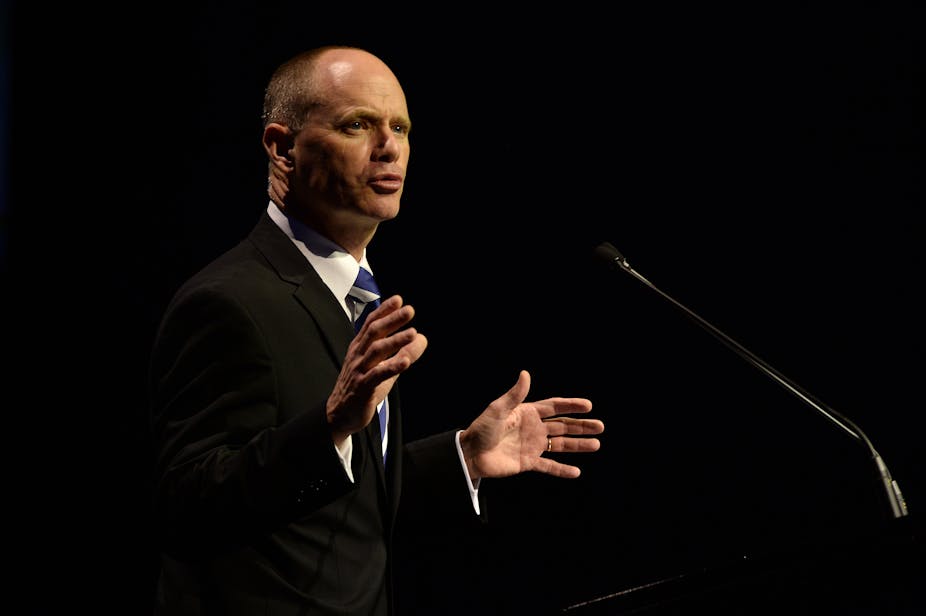Prime Minister Tony Abbott has bluntly dismissed howls of outrage from Liberal premiers over the budget’s plan to push future funding responsibility for hospitals and schools on to the states.
He has rejected their demand for a special meeting of the Council of Australian Governments to discuss the cuts and told them people want state governments to behave like “adults”.
Abbott told parliament there were some things in the budget the states probably didn’t like “because we are not going to be bound by unsustainable spending commitments” made by Labor.
Schools and hospitals were state responsibilities. “They are state-government-run public hospitals, they are state-government-run public schools – state governments will need to take more responsibility for these in the future as is right and proper.
"What the people of Australia expect is grown-up, adult governments in the states just as they now have a grown-up adult government in Canberra - that’s how it should be,” he said.
The premiers of Queensland, NSW and Victoria are especially agitated about the cuts. The Victorian government faces an election late this year and the other two go to the polls early next year.
Queensland premier Campbell Newman and Victoria’s Denis Napthine called for a special COAG meeting after the budget announced the government was adopting “sensible” indexation arrangements for schools from 2018, and hospitals from 2017-18, and removing funding guarantees for public hospitals. The measures would achieve cumulative savings of over $80 billion by 2024-25, the budget papers said.
Newman, incoming chair of the Council of Australian Federation – the group of premiers and chief ministers – spoke to NSW premier Mike Baird, Napthine, the Labor premier of South Australia, Jay Weatherill, and the chief minister for the Northern Territory, Adam Giles.
Newman said they wanted an urgent caucus among themselves and then a special COAG.
“We are all in agreement that what the government is doing in relation to health and education is not acceptable,” Newman said.
But a spokeswoman for Abbott later made it clear there would be no special meeting. “COAG met on May 2 in Canberra. The Prime Minister meets regularly with premiers and chief ministers on a range of matters.
"If premiers or chief ministers wish to raise concerns or other matters with the prime minister between COAG meetings, they can do so in the regular way,” she said.
The cuts have prompted speculation the federal government is trying to get the states to seek a GST increase or a broadening of its base.
Newman said: “The whole thing seems like a wedge to get the states to ask for the GST to be raised.” He also criticised the government for not flagging the cuts when COAG met recently.
Queensland was willing to take full responsibility for health and education but needed a proper funding stream, Newman said.
Napthine said: “Victoria is extremely concerned about the reduced funding for education and health.
"I will fight for the best outcome for Victoria,” he said. “As premier of Victoria, Victorians come first, second and third. We want our fair share of the funding.”
Baird said this was a “kick in the guts” for the people of NSW and asked what services the federal government wanted the state to cut.
“What we had last night from the federal government is a fleet pass; it is cost shifting and it says to this state, ‘We have a problem, you work it out.’
"Our message back to Canberra is no, we’re in this together. You cannot outsource your problems to the state.”
Giles also rejected any attempt at a GST wedge and criticised the government’s failure to give states and territories prior warning at COAG. “It would have been very good to have been made aware of this at COAG two weeks ago; in the spirit of co-operative federalism, there needs to be confidence in sharing these issues with states and territories so we’re all on the same page.”
But West Australian premier Colin Barnett appeared unconcerned by the government’s move, saying it was four or five years away.
“No sense of panic is required but the states will need to come to some sort of agreement with the Commonwealth,” Barnett said.
Listen to the Politics with Michelle Grattan budget podcast with Finance Minister Mathias Cormann and Shadow Finance Minister Tony Burke here.

